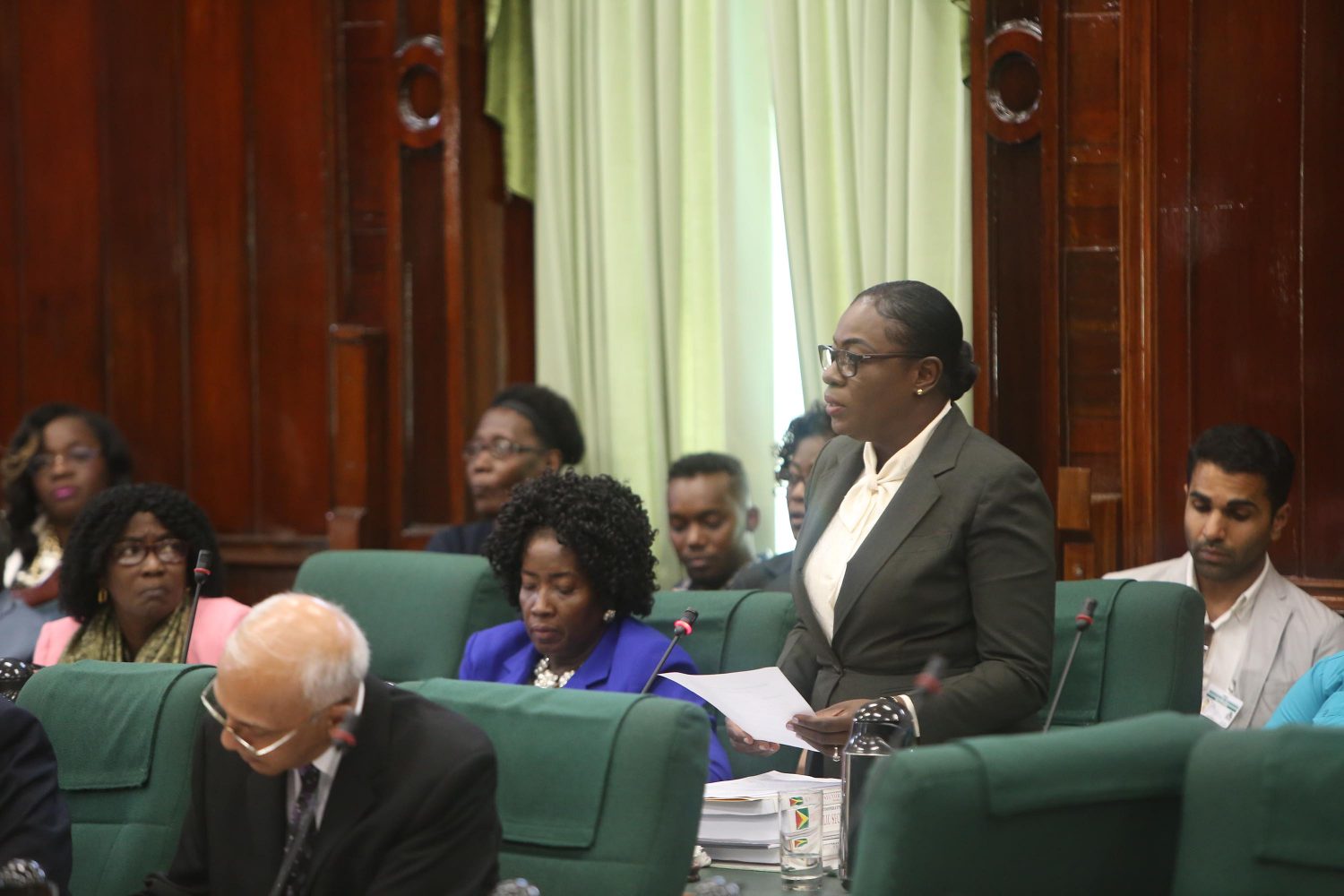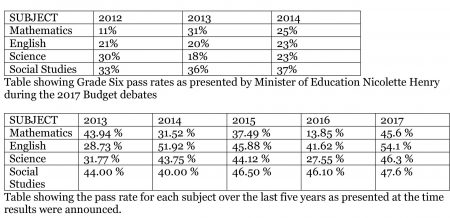The past year has been a “decisive” one for the education sector, according to Minister of Education Nicolette Henry, who told the National Assembly last week that for the first time in more than two decades more than 47% of students were able to secure greater than 50% in Mathematics at the grade six level with similar increases in other subject areas.
“This my friends [is] the embodiment of the concept of the journey to a good life,” she proudly told the House during her presentation on the proposed 2018 national budget.
Henry titled her presentation “The Journey to a First Class Education,” a derivative of the theme of the proposed budget, “the Journey to a Good Life Continues.” During the presentation, she stated that the APNU+AFC administration has been promoting education as the bedrock of development.
“We on this side of the House are… convinced that investment in knowledge, information, and human capital development are pre-requisites to the good life, prosperity, and wellbeing of all citizens,” Henry told the House before launching into a presentation of her ministry’s 2017 accomplishments.
Henry reminded the House that significant sums were invested at the nursery, primary and secondary levels and called out what she termed “alternative facts” that have been presented throughout the debate.
Minister Henry declared that an examination of the performance of the education sector could be illustrated by an analysis of student performances over the years.
“The data can speak for itself,” she told the House before sharing the subject pass rates at the Grade Six Examination from 2012 to 2014.
The data presented by the minister, however, differed greatly from the publicly available statistics on that data.
According to Henry in 2013, the pass rate in Mathematics was 31%, although information provided to the National Assembly by then Minister of Education Priya Manickchand gave the pass rate as 43.9%. Similarly, Henry recorded the English pass rate at 20%, while Manickchand had recorded it at 28.7%. The Science and Social Studies pass rates, presented as 36% and 18%, respectively, have previously been reported as 31.8% and 44%. The data presented for 2014 showed a similar level of discrepancy.
However, though this information was presented in the first five minutes of Henry’s presentation, it went unchallenged by members of the House.
Henry stressed that improved student performance in test scores and at national and regional examinations will not only break the cycle of poverty for many students but also guarantee a better life and brighter future for them, their families and the country.
According to her, the ministry is intent on duplicating the results and therefore has allocated monies for curriculum review, the Interactive Radio Instruction Programme, leadership training for senior teachers, development of a handbook for teaching method/ strategies for primary teachers, and the development of standards for Primary Mathematics from grades One to Six.
She explained that these interventions are expected to build on the progress already made to better equip students holistically to allow them to succeed in the 21st century.
Several welfare interventions such as the expansion of the school feeding programme have also been credited with affecting performance.
Henry noted that government took a conscious decision in 2017 to increase from 110 to 202 the number of schools approved for community-based school feeding programme in the hinterland.
“While this may not seem like much, depending on where you sit in this House, I can tell you to the ordinary people, especially the additional 30,000 students who are benefitting for the first time from school feeding, this is a big deal. Also, because of this initiative, we will create jobs within several communities, as this requires hiring 100 women from within these communities. We have also implemented a breakfast programme with a similar impact on the coastland in addition to the juice and biscuit initiative…,” she noted.
Arguing that the benefits of School Feeding Programme are far-reaching and evidence-based, Henry called on the opposition to show the documented evidence of how its former $10,000 ‘We Care’ cash voucher programme was a model or international best practice and more importantly how it was linked to enhancing enrollment in school or improved educational outcomes.
The opposition has regularly criticised the government for discontinuing the voucher programme once assuming office.
The minister emphasised that according to the United Nations, there is evidence to show that school feeding programmes enhance enrollment in school and better educational outcomes.
During her presentation, Henry also noted that apart from routine activities, some of the initiatives rolled out in 2017 included emergency intervention for Mathematics at the Primary-level, with a strong focus on content and methodology; and expansion of the Allied Arts programme, where in excess of 300 teachers were trained in the areas of dance, drama, music, visual arts and physical education, with a view to creating more rounded students.











